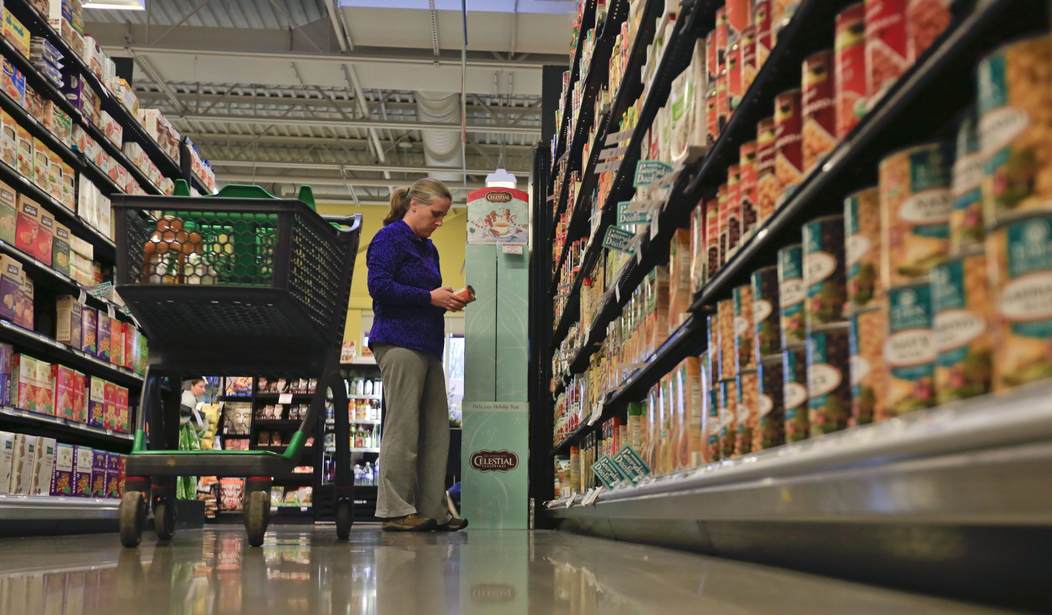WASHINGTON – Senate Minority Leader Chuck Schumer (D-N.Y.) last week called on the Department of Agriculture to work with federal inspectors in eradicating organic food fraud, after recent reports that millions of pounds of falsely labeled products have flooded U.S. markets.
“Consumers must know that when they purchase a product that says ‘certified organic’ that they are getting what they paid for,” Schumer said Friday at a press conference in upstate New York. “The threat of phony organics entering our domestic market could undermine that confidence.”
The Washington Post reported in June that 36 million pounds of non-organic soybean and corn grain were shipped from Ukraine and Turkey to California and falsely labeled as USDA organic, which reportedly drove soybean prices up by $4 million. According to the report, 21 million pounds of the product passed through farms and mills before officials intervened.
Schumer delivered his remarks alongside employees of Birkett Mills, an upstate New York-based organic producer of buckwheat, soft white wheat and custom grains. The senator called agriculture the “backbone” of upstate New York’s economy, while asking the USDA to work with the Office of the Inspector General to issue a report detailing how the agency is addressing the problem.
According to New York state’s Department of Agriculture and Markets, the number of agency-certified organic farmers ballooned from 392 in 2005 to more than 1,050 in 2015. The USDA has exposed dozens of foreign producers using false labeling in recent years, revealing that two fraudulent producers from China were mislabeling buckwheat and other products between 2011 and 2012, according to the lawmaker.
“This fraud has the potential to erode confidence in the (USDA’s National Organic Program) and hurt our farmers nationwide who have met the standards to become USDA-certified organic,” Schumer said.
The USDA has had jurisdiction over organic certification since 1990, and established official standards in 2002. The guidelines are meant to ensure that organics are produced using methods that “maximize soil health, conserve water and reduce air pollution,” according to the agency.
Joy Dubost, a Philadelphia-based dietitian and spokeswoman for the American Society for Nutrition, said in an interview Tuesday that it’s good to see a lawmaker bringing the issue to the attention of federal agencies, but she expressed skepticism that action is taken, given budget constraints at the USDA. Schumer noted the present “fiscal climate” in a letter to the USDA, but urged the agency to work with the OIG on this “critical report.”
The USDA’s budget shrank from $169 billion in 2016 to $149 billion in 2017. The agency has requested $137 billion for fiscal 2018, including $21 billion in discretionary funding, which is about $4.8 billion below 2017 discretionary levels.
“Clearly this is affecting the consumer,” Dubost said. “People buy organic for a number of different reasons, but generally speaking, it costs them more money, and if it’s not necessarily organic, obviously that’s food fraud and misleading to the consumer, and it’s hitting their wallet harder, too, obviously.”
Food fraud in general has garnered a lot of attention on Capitol Hill, she said, but the issue of false labeling for organics has had less focus. Recent incidents include adulteration of parmesan cheese, in which an agent used to prevent clumping was significantly reducing the amount of actual cheese. The fishing industry has seen various examples of substitution, in which a high-value commodity is replaced with a cheaper product, and the olive oil industry has dealt with evidence of dilution, where products are watered down and passed onto the consumer.
“It’s good to see that someone is bringing the issue to light up on Capitol Hill, but the issue with regards to mislabeling organics, what we call food fraud, has been going on for a number of years,” Dubost said.








Join the conversation as a VIP Member